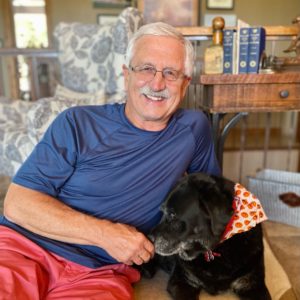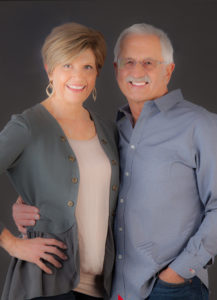 It’s hard these days to put aside all of the political rancor and the effects of COVID-19 on our society. These things seemingly have taken over our lives in a way that I never thought possible. However, and it’s a big however, I look at life as a glass three-quarters full rather than half empty. There are truly silver linings under all of these clouds. One of these is the re-dedication of our attentions to the simpler things in life, a commitment to getting back to the basics in our communities, our homes and those with whom we share our lives, including our animal friends.
It’s hard these days to put aside all of the political rancor and the effects of COVID-19 on our society. These things seemingly have taken over our lives in a way that I never thought possible. However, and it’s a big however, I look at life as a glass three-quarters full rather than half empty. There are truly silver linings under all of these clouds. One of these is the re-dedication of our attentions to the simpler things in life, a commitment to getting back to the basics in our communities, our homes and those with whom we share our lives, including our animal friends.
One indication of that for me was the overwhelming demand for baby chicks at our stores this past spring. Getting back to basics, with the advent of the health crisis in our country, was of prime importance to many rural folks. Successfully raising baby chicks was seen by many of them as a renewal in a difficult world. The biggest problem at the time was that no one saw this coming, including the folks who hatch chicks commercially. They just couldn’t stay up with the demand, a la the toilet paper debacle.
To me, it’s always been pretty self-evident – healthy pets and animals are a huge part of healthy communities! The human-animal bond has long been a key driver in keeping us all grounded, and yet it also helps lift our souls to be open to our greater possibilities. Being passionate about the overall health and well-being of our two-legged, four-legged and winged friends has been an unbelievable boost to our Central Highlands communities. The Quad Cities are widely known as not just animal friendly, but animal driven!
So, just what is it that makes us better versions of ourselves when we open our lives to our animal friends? The truth is, animals center us and our communities, whether they are baby chicks, dogs, cats, hamsters, rabbits, horses, pot-bellied pigs, etc., you name it. They have huge positive effects on our health, personally and community. We have this need to make them part of our family and nurture them. When they look at us with those “big browns” (or blacks, or grays) as if to say, “I work for treats,” it’s hard to resist. We have learned to speak their language, and it’s good.
I can’t tell you how many times Cameron, the Olsen’s store dog in Prescott, has stared a hole through me and I somehow know what she wants. I want her to be happy, and she gets her way more often than not. Therein lies the problem, or course. She never saw food that she didn’t get along with and it’s my responsibility to see she remains healthy, just like it’s our collective responsibility to make sure that our communities remain healthy. It’s that caring attitude that animals elicit in us that extends out into our communities. It’s our need to care for them, love them, confide in them, laugh with them and about them, and mourn them that also takes our communities to a higher level as a result.
The bottom line is that pets and animals make us better people, and that ends up resulting in better communities. They humanize us in a way that the troubles in the world never could. If our animal friends could talk, they would say the same thing, after asking for a treat, of course. QCBN
By Steve Sischka
Steve Sischka is one of the owners of Olsen’s For Healthy Animals, and has been deeply involved in the Prescott community for over 40 years. He is a Prescott City Councilman, on the Board of Trustees of Yavapai Regional Medical Center, and has closely worked with the animal community over the years to make sure that for our animal buddies, Good Enough, Just Isn’t.






